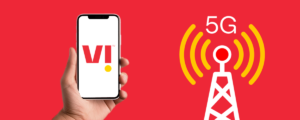
The CEO of the Telecom Sector Skill Council, Arvind Bali, anticipates that the advent of 5G technology in India, introduced in 2022, will likely generate 2.2 crore jobs in the telecom sector and its associated domains, such as cloud computing, robotics, and the Internet of Things (IoT), by 2025. Bali emphasized that this development will further bolster the telecom sector’s contribution to India’s GDP.
He noted that the telecom industry’s share of India’s GDP has already risen to 9%, with 5G playing a significant role in this growth. Bali expects that the upcoming 6G technology will continue to enhance the sector’s contribution to the nation’s GDP.
The CEO explained that 5G technology will create substantial employment opportunities, not only within the telecom sector but also across related fields. Citing a report from the Telecom Sector Skill Council, Bali mentioned that India is poised to possess a surplus of skilled labor in the Technology, Media, and Telecommunications (TMT) sector, with an estimated 13 lakh workers by 2030.
He highlighted the shift towards the Web 3.0 era, where the prominence of software in the telecom sector is expected to triple. Bali suggested that advancements in AI will contribute to the emergence of an even more powerful 6th generation of technology in the years to come.
However, Bali pointed out that India currently faces a significant demand-supply gap in the telecom sector, which stands at 24.1 lakh. This gap is projected to expand nearly fourfold by 2030. The CEO emphasized the necessity of intensifying the focus on skill development in the sector. One of the primary challenges in addressing this skill gap is the mismatch between the academic qualifications of around 60% of India’s graduates in computer science, IT, and mathematics and the industry’s employment requirements.
According to a report from the Telecom Sector Skill Council, the Indian telecom industry currently employs approximately 1.16 crore individuals, including 29.5 lakh corporate employees and 82.4 lakh blue-collar workers. Most corporate employees are involved in network operation, maintenance, and project engineering, while blue-collar workers are primarily engaged in network operation and maintenance, sales, distribution, and service activities.
Arvind Bali concluded by stating that India has a promising opportunity to bridge the widening demand-supply gap by 2030 through effective reskilling and hiring strategies that target potential talent in Tier-II and III cities and leverage university resources.



